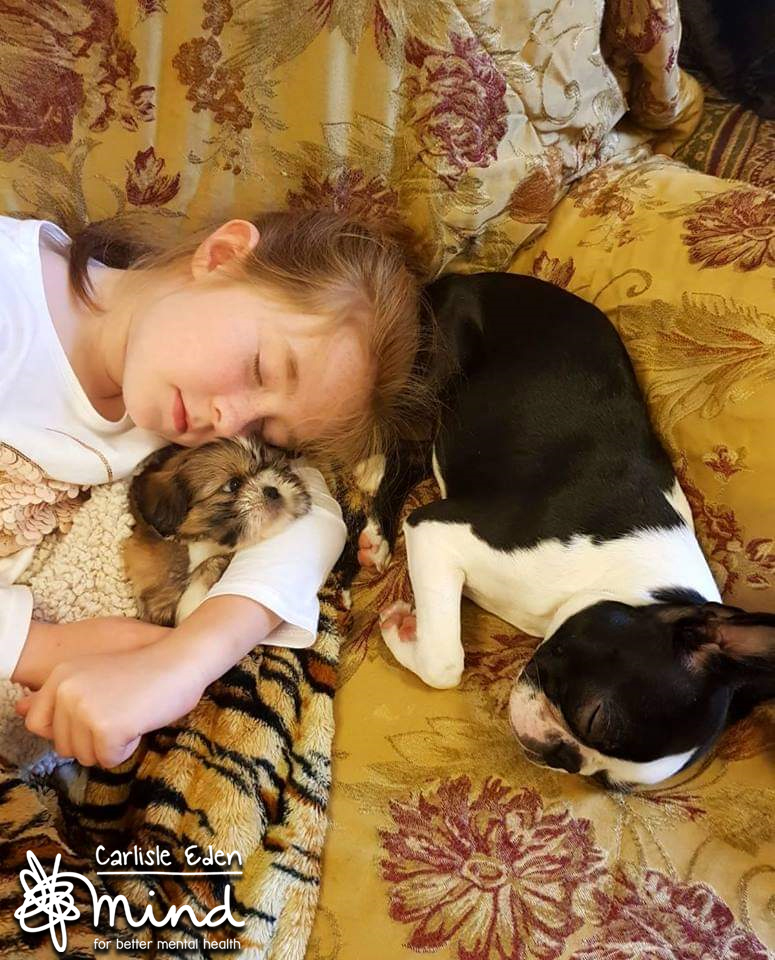The death of a pet is very upsetting. If you are currently suffering with grief after the loss of a beloved pet, read our blog post: The Littlest Feet Make the Biggest Footprints In Our Hearts for tips on how to cope with the grief you will no doubt be experiencing.
Death and loss can be difficult to talk about and many people struggle to know what to say when trying to support someone who has been bereaved, even if they are a close family member or a good friend. You may want to help but worry about saying ‘the wrong thing’. Here are some ideas of how you might be able to support somebody after a loss.
Remind your friend that emotions are not their enemy. Tell them not to feel ashamed or embarrassed of them. Tears are part of the healing process for a lot of people, although it’s perfectly normal to express your emotions in other ways too.

It’s important to remember that grief can fade with time and there are techniques which can even help you come to terms with your loss. Everyone deals will grief differently and there is no right or wrong way. Gradually, it will get easier, even if it seems like you’re taking a long time to come to terms with the passing of your pet.
Here are some tips on how to be more mindful with your friend that is struggling with grief.
- Acknowledge the loss and don’t avoid contact. It’s understandable to feel uncomfortable speaking about death or other losses, or to worry that you might say the wrong thing, but staying silent or not contacting somebody during
- their bereavement can often make feelings of isolation and sadness worse. Reaching out to the bereaved person so that they know you are available to talk and listen if they would like to can be incredibly helpful.
- Consider how best to be in contact. There are different ways to grieve and there are different ways to communicate after a loss too. Receiving text messages may be easier for somebody to manage than returning calls. Dropping in to see them in person may be welcome for some but may be an inconvenience for others. It is worth asking the person what they’d prefer rather than making assumptions.
- Give them space. Not wanting to spend lots of time with other people or feeling guilty at not acknowledging messages could be an additional burden for a grieving person, so it can be worth letting them know they can respond whenever they feel able, or simply send them a message to let them know you are thinking of them and that no response is needed. Adapting to life after a loss can take a long time and people should be allowed the space to process their emotions for as long as they need. It is useful if you can strike a balance between contacting them so that they do not feel isolated but also giving them space.

- Talk about the pet that died. When a person dies it can feel like they are erased from people’s memories. While you may fear that talking about the deceased pet will just bring up painful feelings, many people actually appreciate the opportunity to talk a bit about the memory of the person, finding this a comfort and a way of integrating the memory of the pet who has died into their life, rather than pushing memories away. “What’s your favourite memory?” or “Tell me about a time [the pet who has died] made you laugh” can be useful.
- Focus on listening. Try to respect what the bereaved person is choosing to share with you and focus on listening rather than finding out more. Give the bereaved person space to open up if they want to, while also being sensitive if they would rather not take it further.
- Focus on the bereaved person. Try to keep the focus on the bereaved person rather than coming back to your own feelings about the loss. Unless you have your own experience of bereavement it may not be helpful to make comparisons with your own experiences.
- Help them seek additional support. Supporting someone who is bereaved can be hard work and it is worth exploring what other options for support are out there. If they are ready and interested, help them explore additional support options, such as those listed on our useful contacts page.

Many people refer to the ‘five stages of grieving’ (denial, anger, bargaining, depression, and acceptance) when they are looking to manage their grief. However, this was actually something developed for terminally ill people in coping with their diagnosis. Grief doesn’t follow an order or sequence and whatever emotion you feel is completely valid, whether it’s part of those five stages or not.
When you or a friend grieves, you might feel like there are certain reactions you should be having, but there is no right or wrong way to grieve. However you are feeling about your loss is unique to you.
Remind your friend that once they’ve given themselves time to grieve, they might start feeling like they want to celebrate their pet’s life and focus on the happy memories of their time together. There are lots of ways you can help them remember their special friend.
Photos and keepsakes can be a really lovely way of making them feel like their pet is still close. Or planting something new in their pets favourite garden spot so that they can visit it whenever they feel down or want to talk to their pet.
If you feel like you’re struggling, speak to your vet or your GP. They might be able to put you in touch with a bereavement counsellor. Reading about other people’s experiences and different ways to cope can help, too.

















